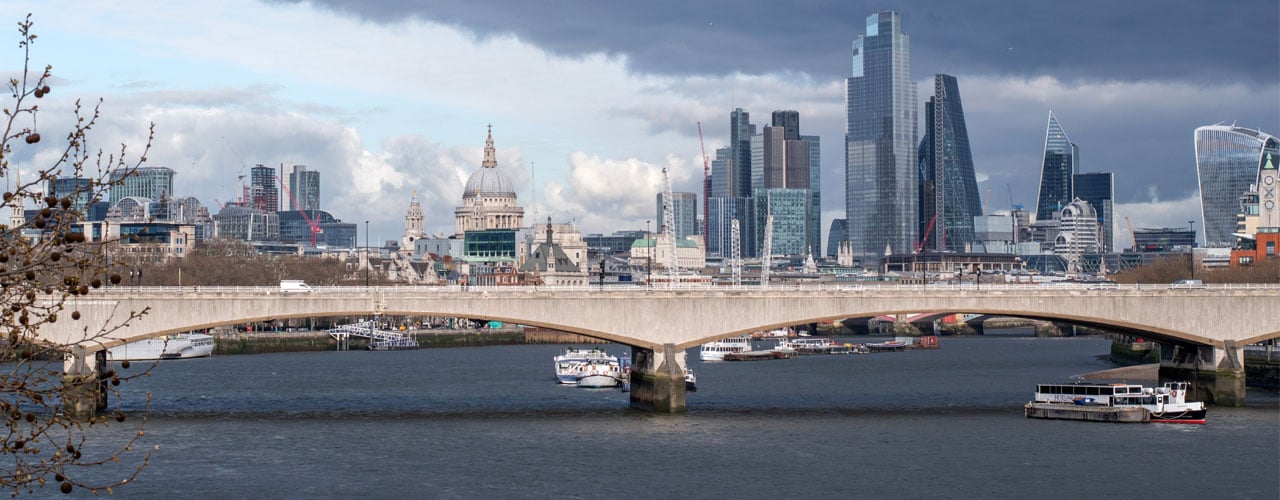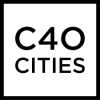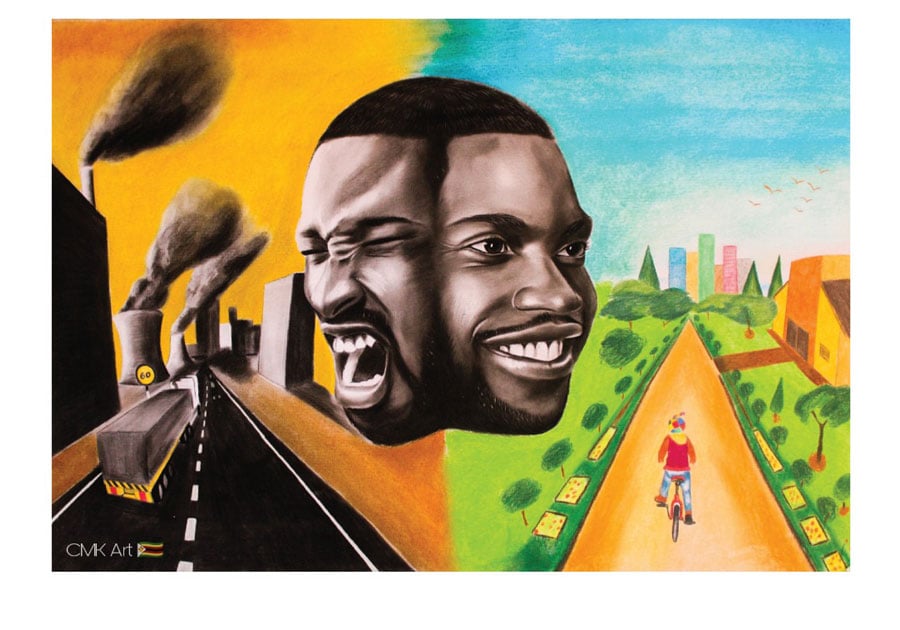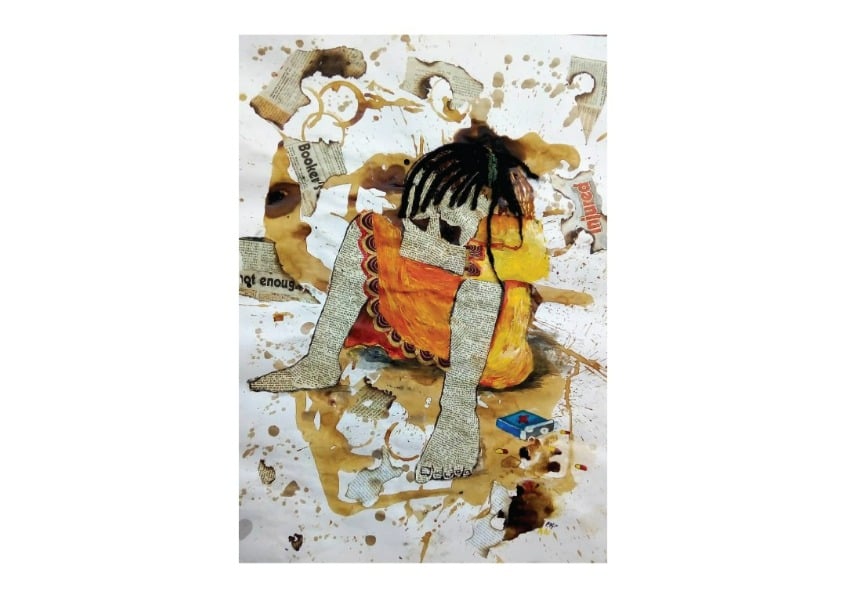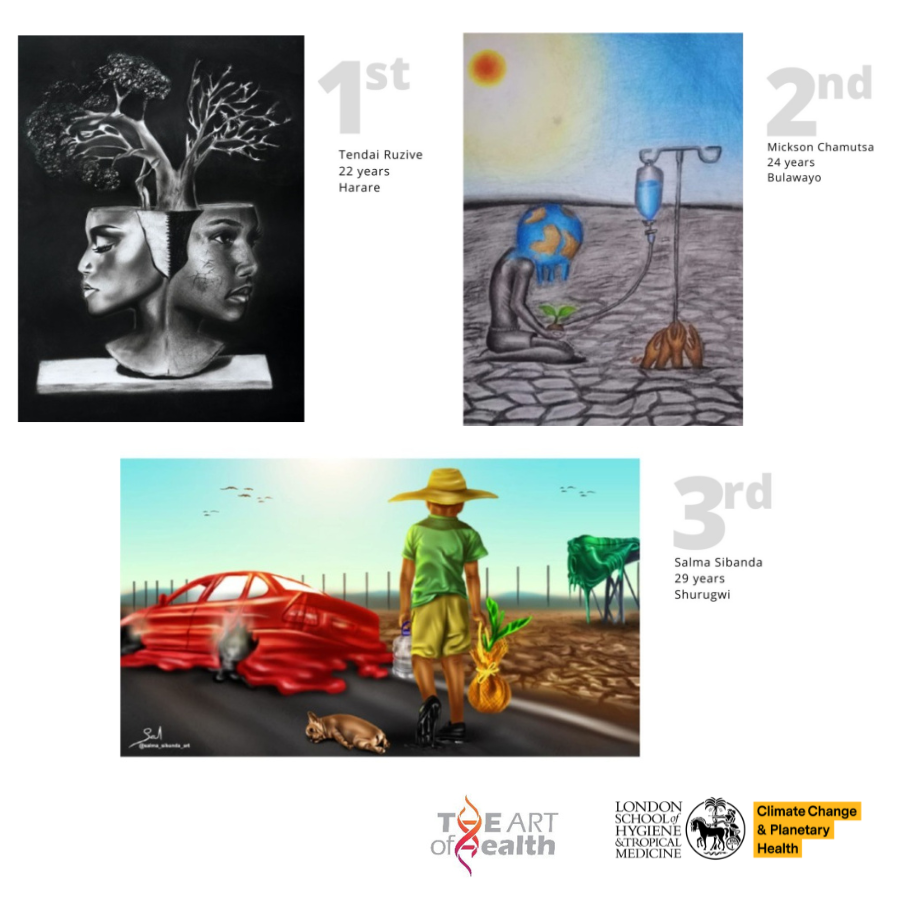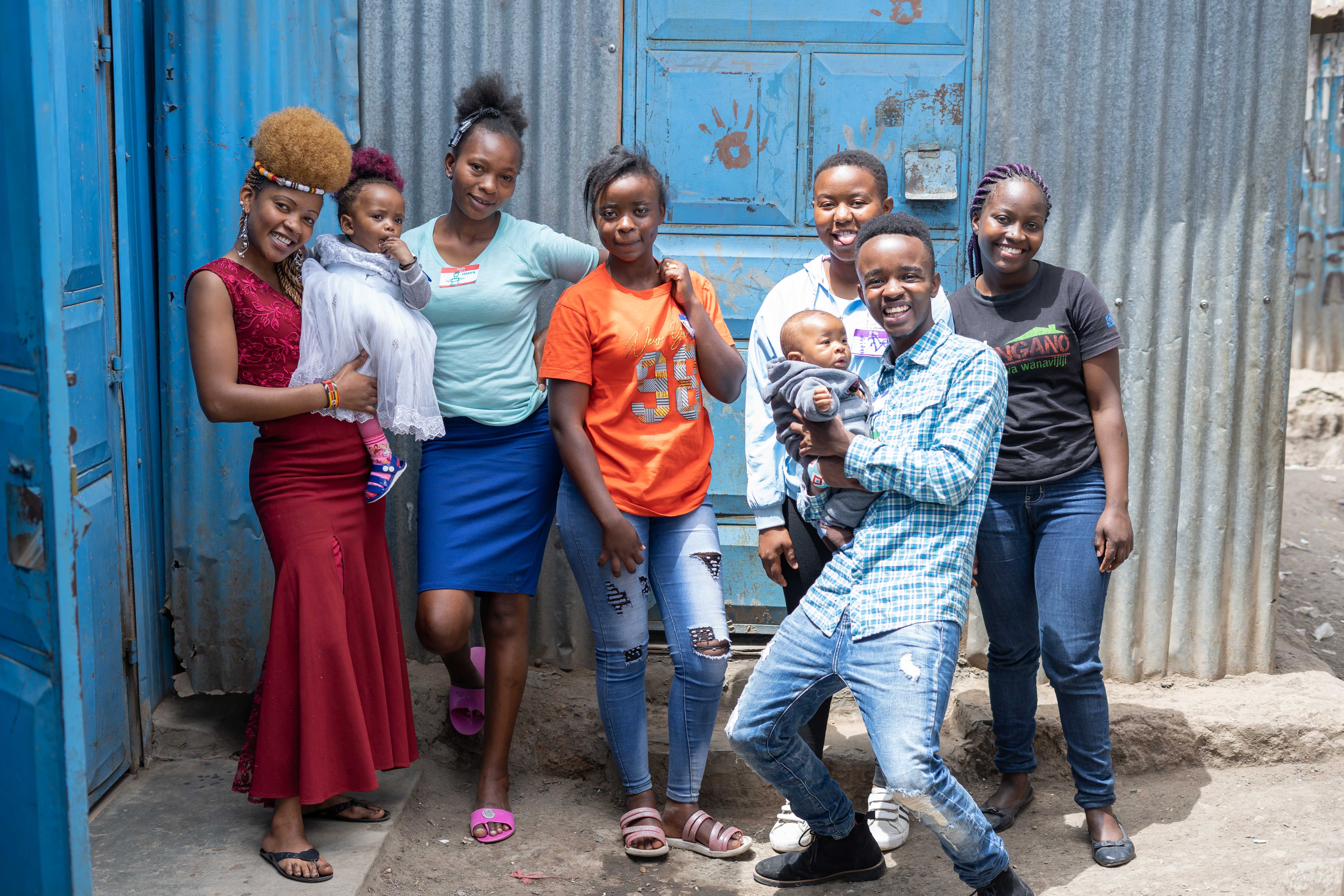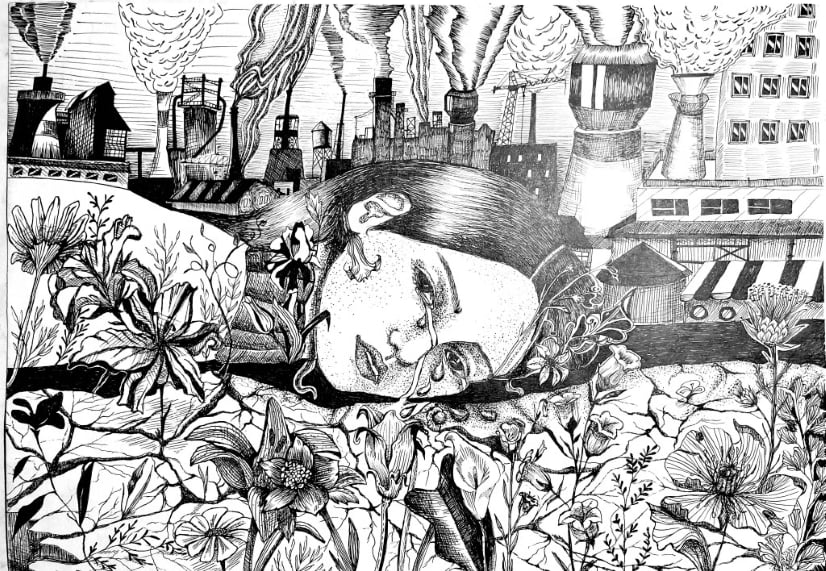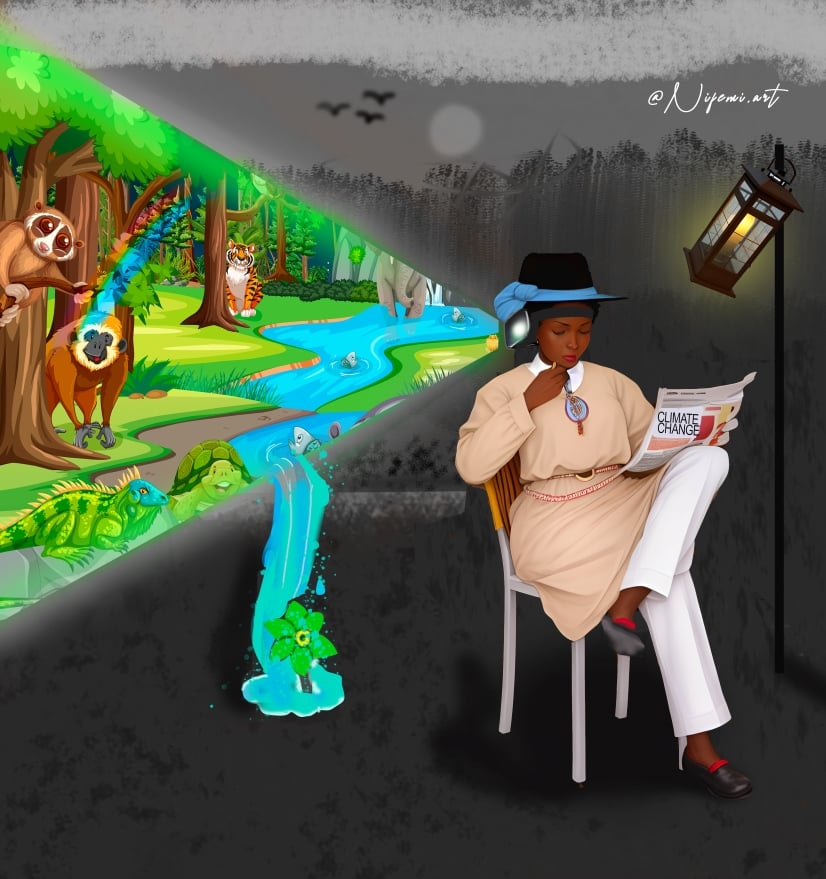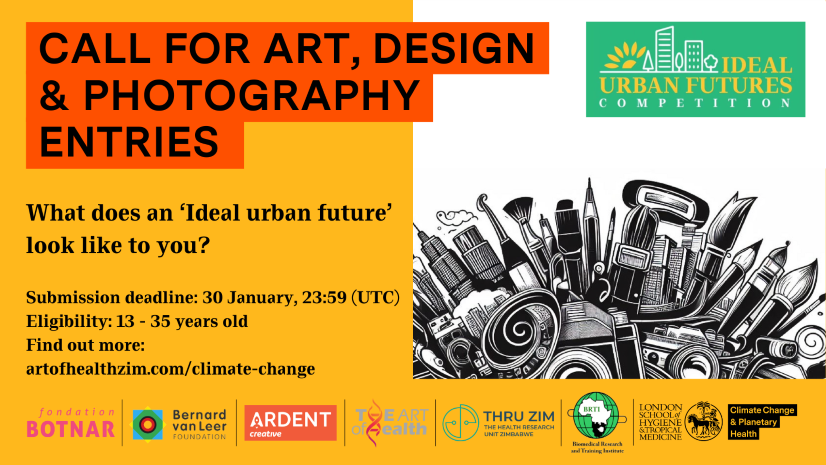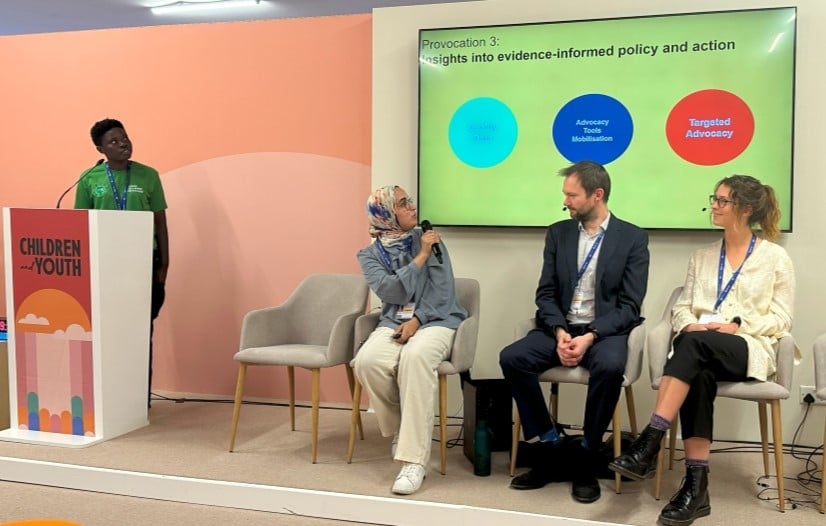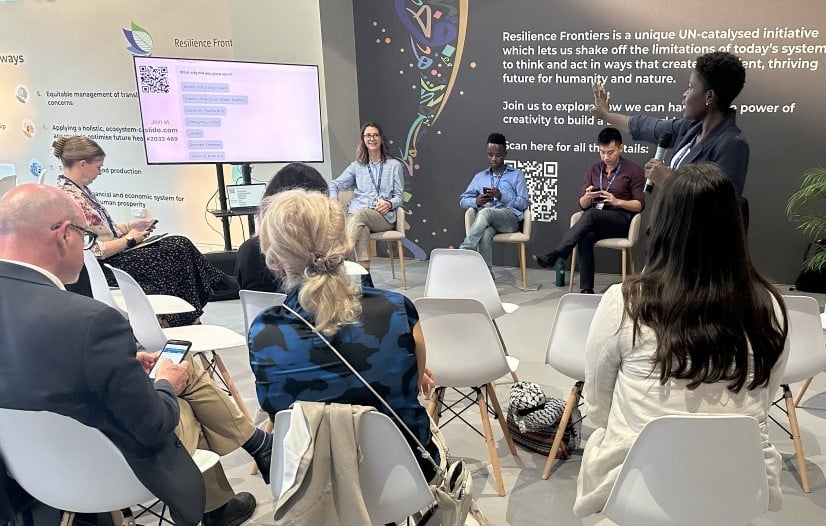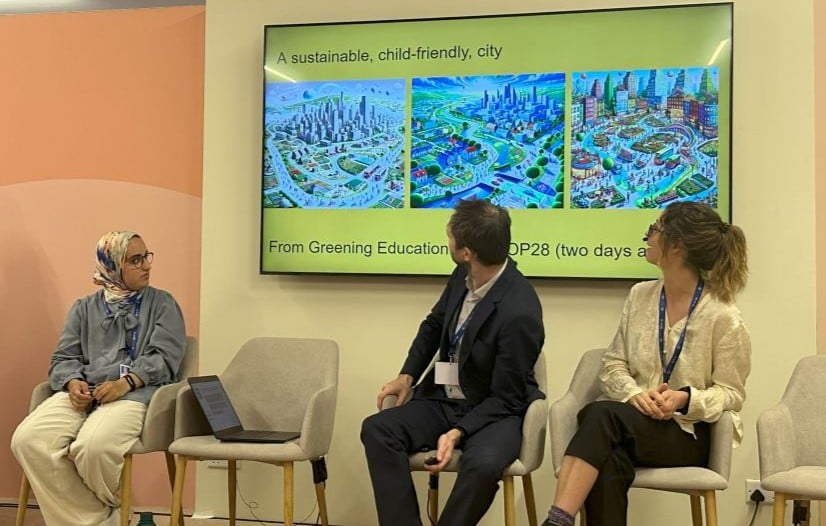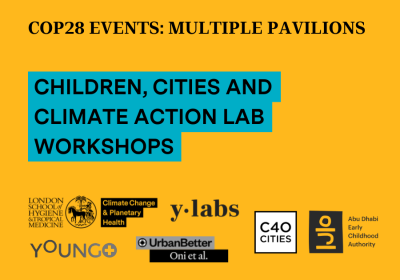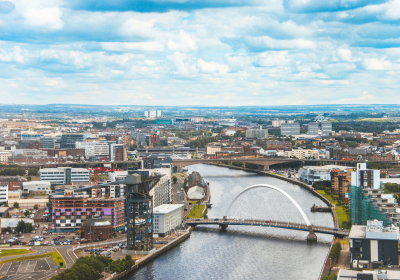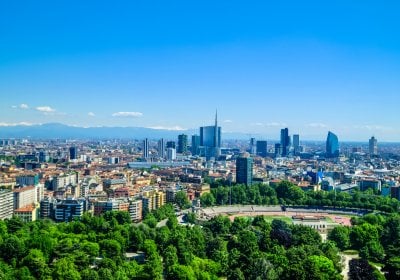The nexus of climate change, cities and child health is critical for the future of people and the planet. The Children, Cities and Climate Action Lab aims to address the interconnected challenges of averting climate breakdown; leveraging the central role of cities in reducing greenhouse gas emissions and improving human health; and analysing the child health co-benefits of improving the quality of urban environments. This project is led by LSHTM in collaboration with YLabs, C40 and UrbanBetter.
Children, Cities and Climate provides new evidence on the potential co-benefits to child and adolescent health of improving urban environments, starting with air quality. In parallel, through an online survey and public engagement activities, the project aims to understand young people’s views about their cities and communicate their vision for healthy, sustainable cities of the future.
The Children, Cities and Climate Action Lab is a global initiative focused on re-envisioning public health and the role of academia amidst the climate crisis, focusing on three key themes: Children, Cities, and Climate.
The nexus of climate change, cities and child health is critical for the future of people and the planet. Across the world, children and young people are among those worst affected by climate change, with air pollution, food insecurity and water scarcity in urban environments having significant negative consequences on their health.
Over 30% of the 4 billion people currently living in cities today are children and this proportion will rise to 70% of 6.7 billion urban dwellers by 2050. Cities are currently a major driver of the climate crisis, being responsible for an estimated 70% of carbon emissions. Evidence-informed and accessible tools are needed to design cities that enable children and young people to live healthily and sustainably in the future.
The Children, Cities and Climate Action Lab (CCC) aims to address three interconnected challenges: tackling the climate crisis; leveraging the central role of cities in reducing global greenhouse gas emissions and improving child and adolescent health; and producing and communicating new scientific evidence on the public health co-benefits of reducing emissions for children and young people.
Young people have a key role to play in driving forward bold and urgent action to decarbonise economies and design sustainable, healthy cities. Through an online survey and public engagement activities, the first phase of the project focused on understanding young people’s views about their cities, elevating their voices and equipping them with the latest scientific evidence on the positive impact of improving urban environments on child and adolescent health. A CCC-led modelling study revealed that more than 20,000 cases of childhood asthma, over 43,000 premature births, and over 22,000 low birthweight births could be averted annually across 16 cities if air pollution reduced to net-zero levels. In parallel to this, the project surveyed over 3,000 young people (aged 13-25), parents of younger children and expectant parents from 59 cities around the world, and carried out a wide range of youth and public engagement activities to understand and communicate the view of young people about their cities and the future.
The CCC presented preliminary research findings at COY16, the youth climate conference, and COP26 in Glasgow, and carried out workshops at COP27 and COP28, providing a window of opportunity for engaging with policymakers and policy-engaged audiences in this area.
The second phase of the project aims to put the health gains that decarbonisation of cities can offer to children and young people at the centre of urban policymaking, predominantly across the Global South, and to support this with informed policy engagement and advocacy in collaboration with partner organisations: YLabs, C40 and UrbanBetter. Led by LSHTM, the CCC seeks to identify and support implementation of solutions for decarbonising cities and improving the health of children and young people worldwide.
The study is being funded by Fondation Botnar and the Bernard van Leer Foundation.
Youth engagement is central to the Children, Cities and Climate initiative. Our research is not just about young people, but with and for young people. Below are some examples of public engagement activities that we have carried out and the creative contributions from young people living in cities around the world.
Phase 1 activities
- Art of Health Breathe In
The Art of Health competition is a crowdsourcing competition in Zimbabwe run by the Zimbabwe LSHTM Research Partnership. The initiative aims to engage young people with issues relating to health and wellbeing through the creative arts. The Art of Health Breathe In competition was a new element of the initiative and the result of collaboration between the Art of Health and Children, Cities and Climate teams.
The competition was divided into two main categories – music and design - and participants were asked to share entries on the theme “The air we breathe in Zimbabwe’s cities”. They were asked to express, through their chosen medium, how they feel about the cities they live in, the air they breathe and the benefits that clean air could bring to health.
Art of Health Breathe In design competition winning entry, Collin Makoni Art of Health Breathe In design competition second place, Progress Nyandoro
Art of Health Breathe In Design competition third place, Busani Ncube - Youth Voices Video
We asked young people around the world to share their thoughts, feelings and messages for world leaders on healthy and unhealthy cities. The air we breathe in our cities: Clean air, brighter futures was produced in the run up to COP26 and will be presented at the conference, with the aim of elevating youth voices and sharing their creative, ambitious vision for healthy, sustainable cities of the future.
- Young Scientists Programme workshop
As part of the LSHTM Young Scientists Programme, the Children, Cities and Climate team ran a three-day workshop on climate, health, urban air pollution and other themes relating to the research. The students, who joined from different schools around London, designed their own research projects in pairs using air quality sensors and presented their findings at the end of the workshop.
- Youth Engagement Campaign in Nairobi and Dar es Salaam
Between August and December 2021, Shujaaz Inc. in partnership with the Children, Cities and Climate team, led a youth engagement campaign in Nairobi and Dar es Salaam.
The campaign’s aim was to share preliminary research findings and engage young people with the intersection of climate change, cities and health through social media content and an online event.
The campaign reached a total of 842.3K young people in Kenya and Tanzania, with over 50,000 deep engagements and reactions (likes, comments, shares) within the 2-week period.
Read the report on the campaign.
Phase 2 activities
- Art of Health Heating Up
The Art of Health competition is a crowdsourcing competition in Zimbabwe run by the Zimbabwe-LSHTM Research Group. The initiative aims to effectively engage young people with issues relating to health and wellbeing through the creative arts. The Art of Health Heating Up competition was the second collaboration between the Art of Health and Children, Cities and Climate project teams, after the Art Of Health Breathe In competition (see above).
Young people living in Zimbabwe's cities were asked to show through art or photography how their life and health have been affected by heat, heatwaves or drought, and to show the benefits that climate action can bring to their health and well-being.
Art of Health Heating Up winning entries - Nairobi co-design workshop
Ahead of COP27 in Sharm el-Sheikh in Egypt, parents of babies and young children living in Nairobi took part in a healthy cities co-design workshop, coordinated by YLabs as part of the Children, Cities and Climate Action Lab.
Nairobi co-design workshop group photo During the workshops, parents shared their experiences of living in a warming urban environment and their concerns about the effects of heat and air pollution on the health of their children. They also had ideas and hopes about what could be done to improve their cities for their children and create a healthier, more sustainable future.
- Art of Health Ideal Urban Futures
The Art of Health held its third competition in collaboration with the Centre on Climate Change & Planetary Health and the Children, Cities and Climate Action Lab (CCC) at LSHTM, as well as Fondation Botnar, the Bernard van Leer Foundation, Ardent Creative and THRU ZIM (The Health Research Unit Zimbabwe, research partner of LSHTM) at the Biomedical Research and Training Institute.
The competition asked for art, design and photography submissions and supporting statements from young people (aged 13-35) to answer the following questions: how have your health and wellbeing been affected by climate change, what are the solutions to the impacts of climate change in your city, and what does an 'ideal urban future' look like to you?
The winning entry was from Toleukhan Madina, aged 16 from Kazakhstan:
Her supporting statement says, "My painting predicts the future of humanity. This personifies the consequences of human irresponsibility and indifference to climate change and the deterioration of nature".
Second place was awarded to Nyasha Gurure, aged 28 from Zimbabwe:
She says "We are connected to the environment that we live in. In this art piece, I endeavour to capture the profund impact of climate change on our human roots and mental well-being. The parched ground symbolises the arid effect of environmental degradation, on my sense of stability and adaptability. It mirrors the challenges I face in adjusting to plans and business endeavours amidst an increasingly unpredictable climate. I depict myself as feeling akin to the dry, cracked earth, experiencing the weight of mental strain and an uncertain future. However, amidst this adversity, a resilient hope for a stable, flourishing tomorrow endures within me. It manifests as an aspiration for rich soils and sturdy structures, representing a longing for a more sustainable and secure world. As the artist, I take on the mantle of responsibility, bearing the weight for a better tomorrow. Each brushstroke and texture serves as a testament to the resilience and determination needed to navigate these challenging times. Through this piece, I convey the struggle, the hope, and the commitment to fostering a future that stands firm and fruitful, a future nurtured through our collective conscientious actions".
Third place was awarded to Dada Nifemi Emmanuel, aged 16 from Nigeria:
In his supporting statement, Dada said, "This piece of art richly captures the main theme of 'Addressing the effects of climate change'. This process requires a multifaceted approach. As conveyed through this piece depicting how healthy flow of water and nature from the vision gadget into her present reality, the present reality in this piece is feeling the adverse effect of climate change already in the dryness of the soil leaving it unfit for crops and plants, which will definitely lead to a greater effect of starvation and hunger globally. This outpouring of nature represents sustainable practices, transitioning to nature friendly policy that ensures the revival of natural advancing environmental policies and regulations, encouraging industries to adopt eco-friendly practices. The woman depicted in this piece serves as a representative of the first teacher of a nation; they represent public awareness campaigns, which are pivotal in promoting responsible consumption and reducing waste. Preservation of wildlife was represented by the animal characters in this piece. International collaboration is crucial to combat the global nature of climate change - nations working together to set and achieve ambitious emissions reductions targets. The woman's consistency was vividly captured as she continues to invest in more enlightenment and burning the midnight candle to ensure the current limitations are no longer relevant in providing solutions. This captures the concept of investing in climate resilience measures, such as improved infrastructure and early warning systems, helping communities adapt to changing climatic conditions. Education and empowerment for individuals to make environmentally conscious choices, fostering a collective commitment to a sustainable future. By combining technological innovation, policy reforms, and grassroots initatives, we can effectively address the effects of climate change and create a resilient, environmentally sustainable world.".
Earlier this year, the Art of Health held a competition in collaboration with the Centre on Climate Change & Planetary Health and the Children, the Children, Cities and Climate (CCC) Action Lab at LSHTM, Fondation Botnar, the Bernard van Leer Foundation, Ardent Creative and THRU ZIM (The Health Research Unit Zimbabwe, research partner of LSHTM) at the Biomedical Research and Training Institute. The competition was asking for art, design and photography submissions from young people (aged 13-35) to answer the following questions: How have your health and wellbeing been affected by climate change? What are the solutions to the effects of climate in your city? And what does an ‘ideal urban future’ look like to you?
This marks the third collaboration between the CCC and the Art of Health, following two other competitions called ‘Breathe In’ and ‘Heating Up’. These competitions have engaged adolescents to express the effects of climate change on their health and wellbeing and suggest solutions to the challenges they are experiencing.
We received 162 submissions from 32 countries – the majority from Africa and Asia. A panel of judges representing the partners and previous competition winners assembled to select top three winners from a shortlist of 16 entries.
The winning entry for the Ideal Urban Futures Competition was by Toleukhan Madina, aged 16 from Kazakhstan:
In her supporting statement, Toleukhan said, "My painting predicts the future of humanity. This personifies the consequences of human irresponsibility and indifference to climate change and the deterioration of nature."
Explore the second and third place submissions, and supporting statements in full.
How have your health and wellbeing been affected by climate change? What are the solutions to the effects of climate change in your city?
The Ideal Urban Futures Competition is looking for art, design and photography submissions from young people (aged 13-35) that answer these questions. We ask, "What does an 'ideal urban future' look like to you?" - perhaps one in which the causes and effects of climate change have been successfully addressed?
This competition is run by the Art of Health in collaboration with the Centre on Climate Change & Planetary Health, and the Children, Cities and Climate (CCC) Action Lab at LSHTM, Fondation Botnar, the Bernard van Leer Foundation, Ardent Creative and THRU ZIM (The Health Research Unit Zimbabwe, research partner of LSHTM) at the Biomedical Research and Training Institute. This is the third in a series of competitions held by the Art of Health and the CCC, with the aim of engaging young people with issues relating to health and wellbeing through the creative arts.
The first two competitions were focussed on the air young people breathe in Zimbabwe's cities, and how young people in these cities have been affected by heat, heatwaves or drought. This latest competition is welcoming submissions from around the world, and hopes to gain a more global understanding of how climate change affects young people, and the changes they want to see to create sustainable and healthy low-carbon cities in the future.
Entries must be submitted by 30 January 2024, 23:59 (UTC), and winners will be announced on 15 February 2024. Find out more information or contact art@ardentc.com.
The Children, Cities and Climate (CCC) Action Lab hosted four live workshops during COP28 in December 2023, inviting young people and policymakers to co-design an agenda for improving cities to be healthier and more sustainable. The workshops used creative approaches to build a concept of both the lived experience of young people in cities affected by climate change, and an ideal urban future that prioritises health and sustainability. The events were hosted in multiple pavilions to allow youth voices to be brought to different sectors and audiences across the two weeks at COP28, including the Greening Education Hub, the Children and Youth Pavilion, the Resilience Frontiers Hub and the Health Pavilion, and were created and implemented with several partner organisations: YLabs, C40, UrbanBetter, YOUNGO, and Abu Dhabi Early Career Development Authority.
Participants of the workshops spoke freely on their lived experiences of the impacts of climate change, from air pollution in overpopulated cities, to the threat of flooding in small island states. They were asked to imagine their ideal future urban environments, and these descriptions of both their current experiences, and imagined futures were then transformed into imagery using generative AI tools and shared at subsequent workshops.
The outputs of the workshops will be analysed as part of research findings from the CCC Action Lab, and will help to set the agenda for improving urban health and sustainability. The Action Lab are inviting their youth facilitators to analyse and contribute to publications resulting from these workshops. Rachel Juel, Research Assistant at LSHTM in the CCC Action Lab emphasises the importance of integrating youth voices into research and ensuring youth engagement is not tokenistic, stating that, “Our facilitators know the context of these conversations even better than we do, as many of them similarly are young people experiencing climate change. Having their insight during the analysis of these conversations is invaluable”.
Dr Robert Hughes of LSHTM, Co-Principal Investigator of the Children, Cities and Climate project, said: “My main takeaway from these events at COP28 was that through coming together across disciplines and generations we really can make a stronger case for making our cities healthier and more sustainable. Being able to use AI to visualise both the ways that climate change is already affecting children and young people and also the visions for a brighter, healthier future really helps to motivate and inform our research in this next phase of the CCC Action Lab.”
This series of co-design workshops at COP28 are the first in a larger series of co-design workshops that will take place over the next two years in multiple cities, as part of a £1.5 million grant recently awarded to the CCC Action Lab by Fondation Botnar, and previous funding awarded by the Bernard van Leer Foundation.
You can find links to recorded livestreams for two of the workshops here.
Download our Children, Cities and Climate preliminary findings (pdf) from a global survey of urban young people on the air they breathe and a child health co-benefits analysis of radical decarbonisation of 16 global cities.
New estimates suggest 20,000 childhood asthma cases and 65,000 adverse birth outcomes could be prevented annually by achieving 'net zero' in 16 cities.
A linked “first of its kind” survey finds 4 in 10 young people see air pollution as one of the three worst things about their city.
Read the news story.

